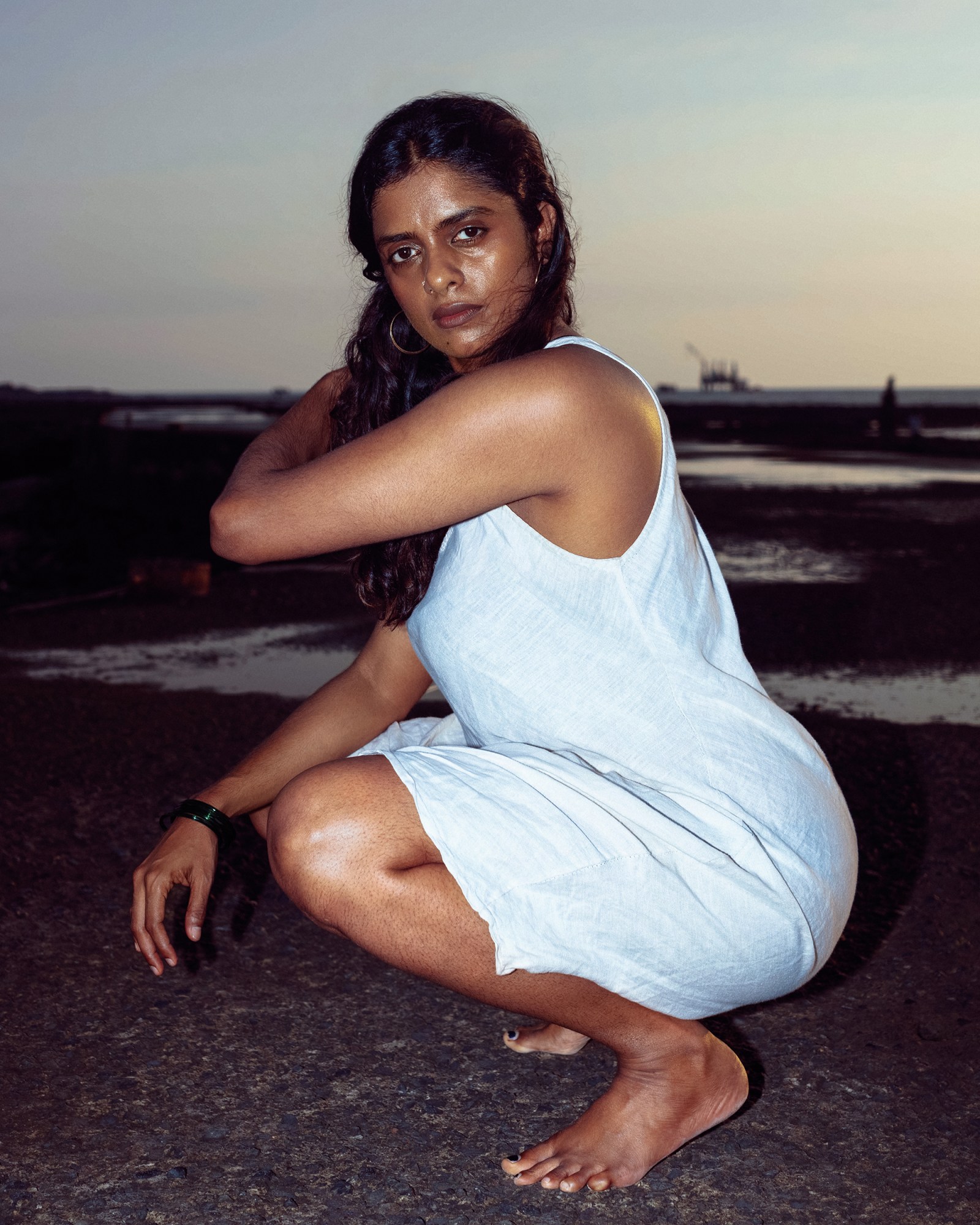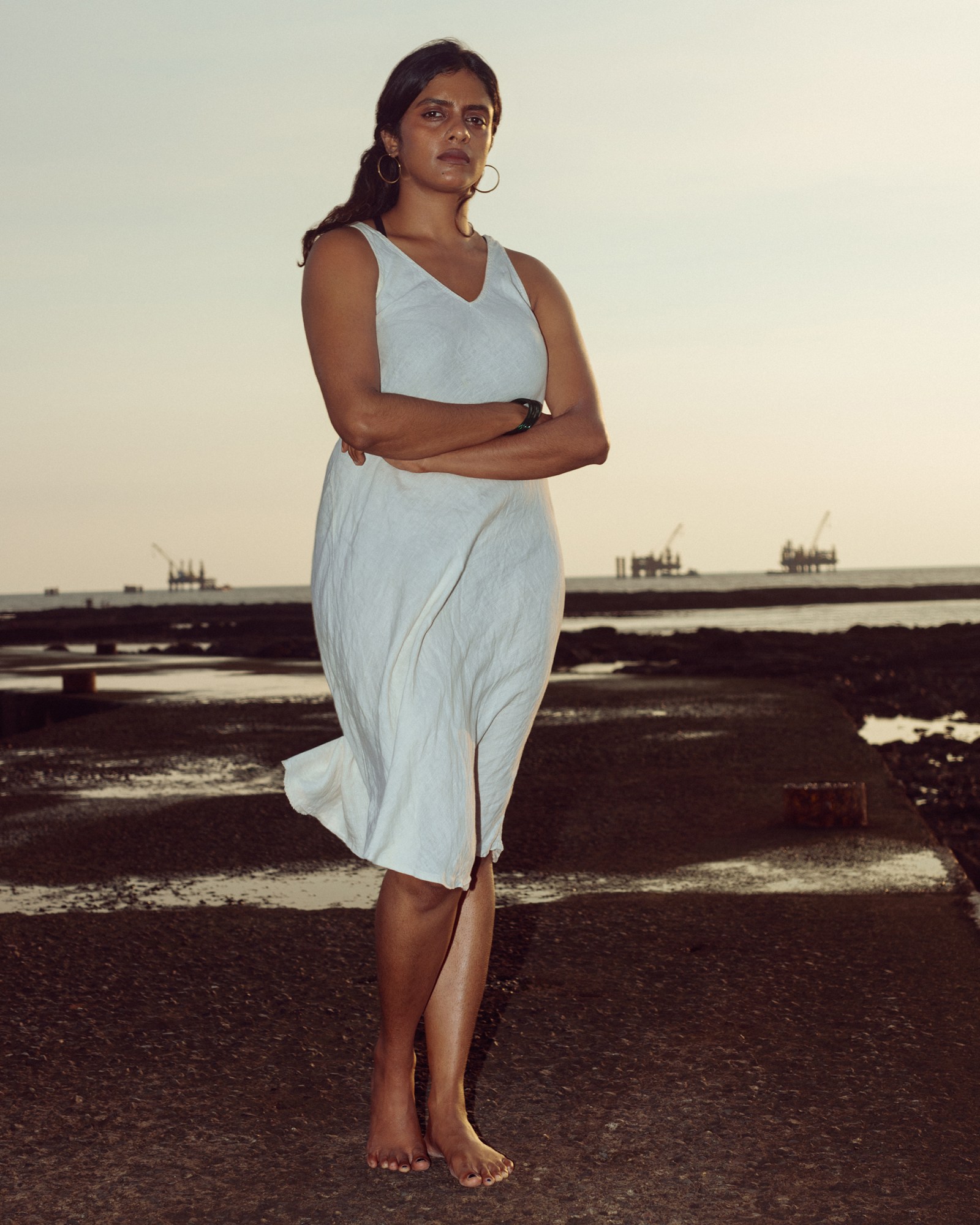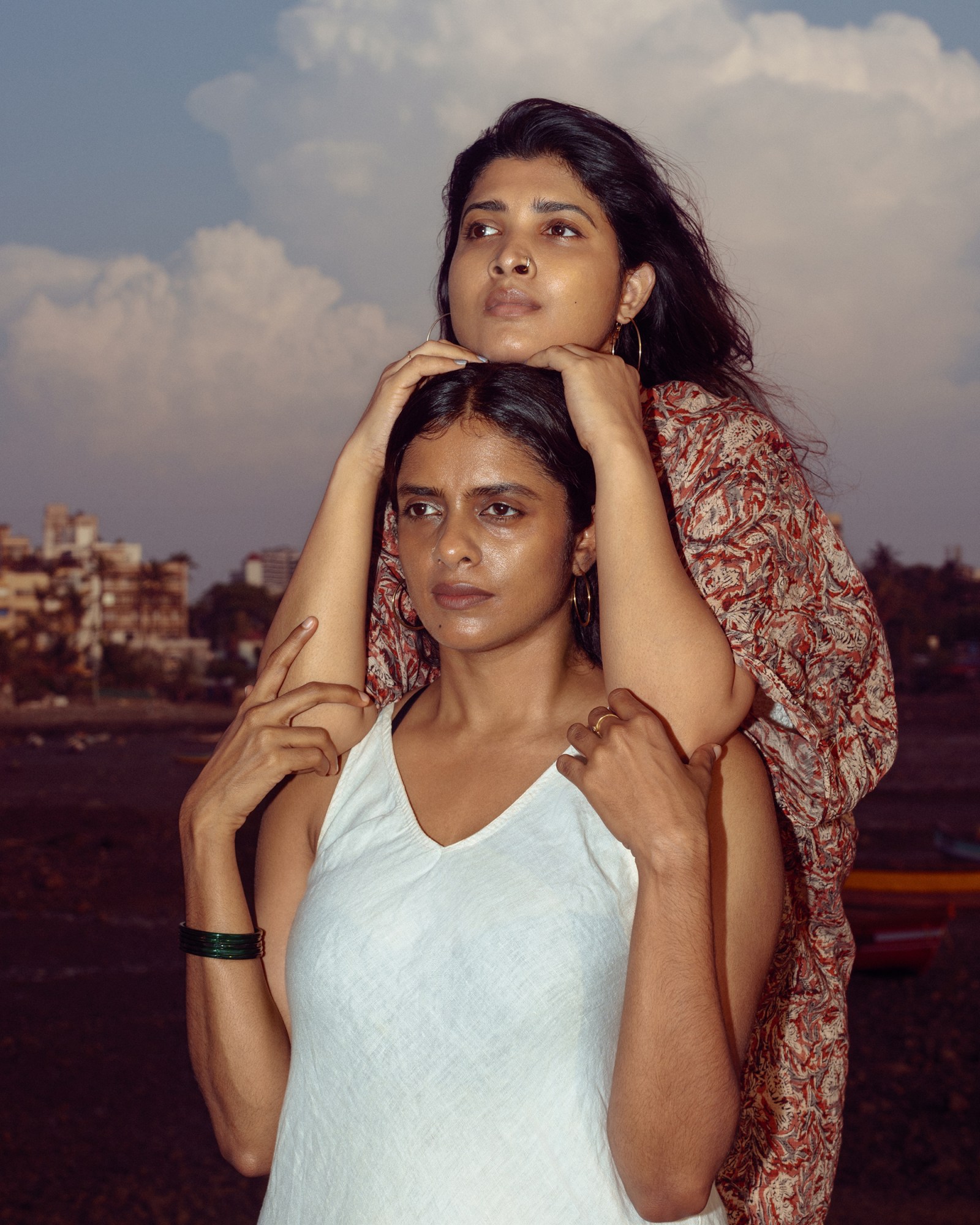In a quietly pivotal scene in All We Imagine As Light – Payal Kapadia’s prize-winning film about urbanity, romantic convention and emotional connection in Mumbai – a woman sits on her kitchen floor in the middle of the night and embraces her rice cooker. Bathed in blue, Prabha (Kani Kusruti) pulls its candy apple-red casing to her chest and sits in silence. She’s not sure if the appliance is from her husband, who left for Germany some years ago. But in the European postmark, she finds some reassurance, a sliver of hopeful romance.
“It looks so international!” her friend Anu (Divya Prabha) exclaims, as she unboxes it for her flatmate with ravenous curiosity. As Prabha’s younger, more free-spirited coworker (both women are nurses at the same hospital) Anu typifies a familiar sort of badmaash, or deviousness. She’s coy and confident, unafraid to pursue attraction – to hell with the repercussions. Kusruti, on the other hand, plays the straight-laced Prabha as an empathetic listener dedicated to her patients: responsible, reserved, and a little self-effacing. She’s less rebellious than Anu, but still a dreamer in her own right; the kind of character you only come to know in private moments like that yearning midnight scene.
All We Imagine As Light was the first Indian film in 30 years to play in competition at the Cannes Film Festival, and won its coveted Grand Prix this past spring. In September, Variety reported that it was “on track to become one of the most theatrically distributed Indian indies of all time.” The article was one of several that tipped the film as a potential Oscar contender, since its multi-country production made it eligible as an international feature entry in both India and France.


The awards hype followed a flurry of critical acclaim for the film, which locates itself between arthouse dramedy and urgent social commentary; it criticises corporate interests and the confines of cultural tradition while celebrating resistance, kinship, humour and ephemeral beauty. Against the inky backdrop of monsoon season, Anu spurns the Hindu men her parents set her up with (“He looks like an eggplant,” she notes of one suitor’s online profile) and dons a burqa to sneak into the apartment of her Muslim boyfriend (Hridhu Haroon). While she schemes to lose her virginity, Prabha, meanwhile, is reckoning with the lonely reality of her long-distance marriage, as well as the displacement of their friend Parvaty (Chhaya Kadam), and the unexpected affections of one of her colleagues (Azees Nedumangad) .
Like practically every critic who reviewed it, Kusruti felt compelled by the “poetry” of the film’s dialogue when she read the script. She fell in love with it, “not because it had a lot of gigantic scenes or clever things to make you wonder,” she says. “It wasn’t being smart just to show you a trick. It was subtle, with a gentle touch.” Even the political themes addressed in the plot – encompassing workers’ solidarity, affordable housing, perhaps even a Marxist theory of love – never feel overly didactic.
“It was the first time I felt like crying after reading a script,” Prabha says, calling in from Mumbai. “There were so many scenes that touched me.” She recalls a moment when Anu wonders how Prabha could have gone along with an arranged marriage. Prabha replies, “You might think you know someone, but they can also be a stranger.’” Though India boasts a historically low divorce rate, this number is slowly on the rise, and while the country’s Supreme Court has placed the blame on love marriages, any relationship can end in dissatisfaction – and not everyone feels they can, or are able to, formally leave.
The shoot took place over around 40 days, but its main actors had around eight months of committed preparation beforehand. “[Kapadia] gave us so much time for us to internalise our characters, so when we had other options or suggestions to offer, they were almost always in sync with Payal’s ideas.” In the eyes of her leads, Kapadia was a true auteur. “There is not a single moment or thing [on screen] that has not been approved by Payal,” Kusruti says. “[Kapadia] is more like a designer or artist that way, or an author who is very much paying careful attention to her work.” For Prabha, the director’s process was a refreshing contrast to her previous on-set experiences: “It’s incredibly collaborative even though she knows exactly what she wants. But she always keeps the space quite open, allowing us to brainstorm and gain more clarity about her character.”
When rehearsing as Anu, Prabha says she tried to recall a late-teenaged version of herself. Her walking pace, for example, she imbues with the energy of a carefree, adolescent bound. “Anu expresses a lot with her lips, but the way she kisses is not my kind of kissing!” she says, referencing the slow, hungry make out sessions she shares with Haroon’s character. Until she read for All We Imagine, Prabha found she had been somewhat typecast. “In my previous films I played very mature, Prabha-type roles. But Anu is very young and spontaneous, very instinctive. It’s the first time I’m playing a character with so much energy and love like that.”
“The Cannes Film Festival was absurd”
kani kusruti
Though the film is set in a city whose populace primarily speaks Marathi and Hindi, Kapadia focuses on a pair of characters who speak Malayalam, a Dravidian language primarily spoken in Kerala. Anu and Prabha live a somewhat privileged existence due to their professional status, but nevertheless feel othered and marginalised as migrants in Mumbai.
Both Kusruti and Prabha established their careers in Malayalam-language cinema – the former breaking out in 2009 with the horror anthology picture Kerala Cafe; the latter starring in the 2022 Netflix drama Ariyippu – having spent their formative years growing up in rural villages in Kerala. Though neither thinks of themself as much of a “city person,” today Prabha lives in Kochi, an industry hub for contemporary Malayali film; Kusruti currently resides in Goa’s capital of Panjim, famed for its beaches, floating casinos and locally-produced gin.
The pair share more than a few things in common, including but not limited to an avowed love of the Coen brothers and Yorgos Lanthimos: “Films like Dogtooth and The Killing of a Sacred Deer – not his later ones,” Kusruti says definitively. Perhaps, the actors say, Kapadia’s film is the tipping point for more quality Indian indies to enter the festival circuit. Kusruti would like to see more by Gurvinder Singh, best known for his Punjabi-language adaptations of literary works, and the experimental filmmaker Amit Dutta. Prabha praises Syam Pushkaran, a Malayali screenwriter, and Hindi filmmaker Neeraj Ghaywan – his 2015 film Masaan picked up two prizes after screening in Cannes’ Un Certain Regard sidebar section.
For Kusruti, travelling to the south of France for the film’s premiere was, in a word, “absurd.” “And I mean that in a good way and in a bad way,” she says. Of course, getting to watch the finished film in a place like Cannes with the whole cast and crew was a surreal pinch-me moment. But did they get to hit the beach? Slurp down an oyster or two? Kusruti shakes her head. “There were some parties that we tried to attend, but [timings] were so tight. I starved almost every day.”
Despite the film’s Cannes laurels, neither India or France submitted it for their Oscar campaign. In a political era dominated by the poisonously divisive right-wing rhetoric and Islamophobia of Indian Prime Minister Narendra Modi, some have perceived this negligence on India’s part as a snub, maybe even a repudiation of the film’s explicitly socialist concerns.
Regardless of the committees’ intent, Kapadia has brushed this off as “part of life,” saying that France’s shortlisting of the film for their campaign felt “random” to her, and that you need a lot of “private money” behind you in order to “lobby” for your movie in Hollywood anyway. (France’s Oscar entry this year is the Netflix-backed Emilia Perez, and India has gone with Laapataa Ladies: a crowd-pleasing wife-swap comedy that was also acquired by the streamer.) In the words of a great man, the Oscars are very local. Kusruti and Prabha aren’t too bothered by them either.
“Of course, it’s a validation,” Kusruti says. “It gives you a certain kind of hope and a certain kind of adrenaline rush. But I don’t personally care about any of these things.”


‘All We Imagine As Light’ is in US cinemas now, and will be released in UK cinemas on 29 November
Credits
Writer: Jenna Mahale
Photography: Indra Joshi
